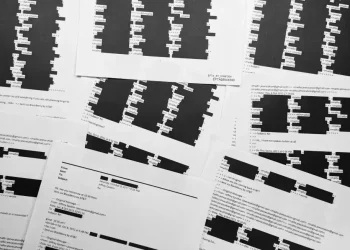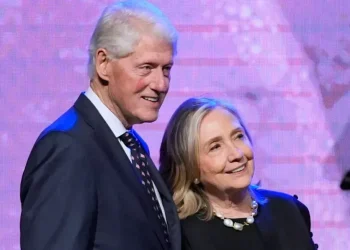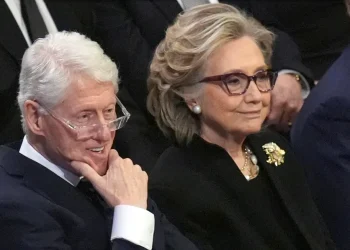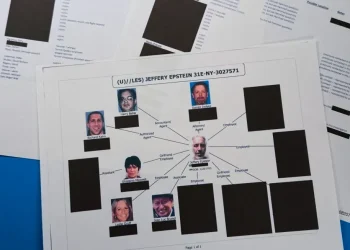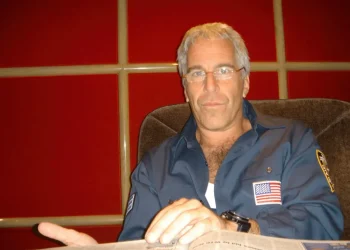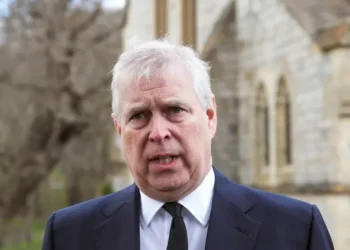Ghislaine Maxwell appeals to U.S. Supreme Court to reverse trafficking conviction
Written on July 29, 2025 – 18:00 EDT
Ghislaine Maxwell, the longtime associate of convicted sex offender Jeffrey Epstein, has petitioned the United States Supreme Court to review and overturn her 2022 sex-trafficking conviction. Her legal team argues she was covered by a non-prosecution agreement (NPA) Epstein signed with federal prosecutors in 2007—an agreement she says should have shielded her from criminal liability.
Maxwell, who is currently serving a 20-year sentence in federal prison, maintains that the U.S. government violated the terms of that agreement by prosecuting her for crimes linked to Epstein. The Supreme Court is expected to decide later this year whether it will take up the case.
Maxwell claims federal promise was broken
In a new brief filed Monday, Maxwell’s attorneys asserted that the U.S. government broke its word by pursuing charges against her despite the earlier agreement made with Epstein. They emphasized that the issue at hand is not Epstein’s criminal conduct, but the legal obligations of the federal government.
“This case is about what the government promised, not what Epstein did,” her lawyers told the Court.
David Oscar Markus, Maxwell’s lead attorney, issued a statement reinforcing that position:
“We are appealing not only to the Supreme Court but to the president himself to recognize how profoundly unjust it is to scapegoat Ghislaine Maxwell for Epstein’s crimes—especially when the government promised she would not be prosecuted.”
The petition argues that the Epstein NPA, reached in Florida in 2007, included a clause that should have extended protections to his alleged co-conspirators. Maxwell’s team contends she was among those individuals and therefore should not have faced prosecution in a different jurisdiction years later.
Appeal challenges split in federal court interpretations
In April, Maxwell formally filed her appeal with the Supreme Court, following the rejection of her claims by the 2nd U.S. Circuit Court of Appeals in New York. That court ruled the Florida-based non-prosecution agreement did not bind federal prosecutors in other states, including New York, where Maxwell was indicted.
Her attorneys argue that there is inconsistency across federal appellate courts regarding the geographic scope of such agreements. While some courts have upheld the nationwide applicability of NPAs, others, like the Second Circuit, have restricted their reach.
“The government’s argument, across the board, is essentially an appeal to what it wishes the agreement had said, rather than what it actually says,” Maxwell’s team wrote in the appeal.
The Supreme Court’s decision on whether to grant a hearing could set a national precedent on the legal reach of federal non-prosecution agreements—especially in cases involving multiple jurisdictions.
Epstein case continues to cast legal shadows
Jeffrey Epstein pleaded guilty to state-level prostitution charges in Florida in 2008 as part of the controversial non-prosecution deal. He later faced renewed federal sex trafficking charges in 2019 but died by suicide in jail while awaiting trial.
Maxwell’s 2022 conviction followed a high-profile federal trial in New York. Prosecutors accused her of grooming and recruiting underage girls for Epstein between 1994 and 2004. She was found guilty on five federal counts, including sex trafficking of a minor and conspiracy charges.
The broader Epstein case has remained a source of public scrutiny and political debate—particularly over how Epstein’s wealth, power, and legal connections may have influenced the criminal justice process.
DOJ responds, says Maxwell not protected by prior deal
The U.S. Department of Justice strongly pushed back against Maxwell’s claim that the Epstein agreement should apply to her case.
In a brief submitted to the Supreme Court on July 14, the DOJ stated:
“Petitioner was not a party to the relevant agreement. Only Epstein and the Florida U.S. Attorney’s Office were parties.”
Legal experts note that even if Epstein’s NPA had language referencing co-conspirators, there is a legal question as to whether individuals not explicitly named can benefit from such protections without formal inclusion or separate agreements.
Political undertones linger
Maxwell’s legal efforts come amid renewed public interest in how the Epstein case was handled during previous administrations. Although the Supreme Court brief does not directly mention politics, Maxwell’s legal team indirectly appealed to former President Donald Trump, referencing his business reputation.
“President Trump built his legacy in part on the power of a deal – and surely he would agree that when the United States gives its word, it must stand by it,” Markus said.
Notably, Maxwell has also met with Deputy Attorney General Todd Blanche in recent months, according to multiple reports. However, those discussions were not referenced in her latest Supreme Court filing and their substance remains unclear.
Next steps: Will the Court weigh in?
The U.S. Supreme Court is expected to review the petition in its upcoming session and determine whether to hear the case. If the justices accept the appeal, the case could provide clarity on the federal government’s obligations under non-prosecution agreements—and whether such deals can be enforced across jurisdictions.
If the Court declines to take the case, Maxwell’s legal avenues for overturning her conviction would be effectively exhausted.
Until then, Maxwell remains incarcerated at FCI Tallahassee, a federal prison in Florida. Her case, closely tied to one of the most notorious sex trafficking scandals in recent American history, continues to spark legal, political, and public interest.
This article was rewritten by JournosNews.com based on verified reporting from trusted sources. The content has been independently reviewed, fact-checked, and edited for accuracy, neutrality, tone, and global readability in accordance with Google News and AdSense standards.
All opinions, quotes, or statements from contributors, experts, or sourced organizations do not necessarily reflect the views of JournosNews.com. JournosNews.com maintains full editorial independence from any external funders, sponsors, or organizations.
Stay informed with JournosNews.com — your trusted source for verified global reporting and in-depth analysis. Follow us on Google News, BlueSky, and X for real-time updates.


